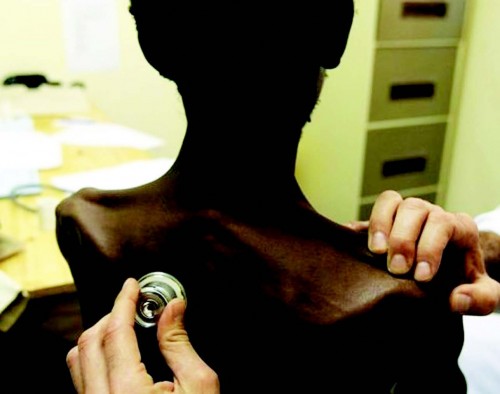The health Minister, Prof. Isaac Adewole announced that the country is still recording as many as 250,000 deaths every year from the disease while there is “a distressing” rise in cases of undetected and undiagnosed tuberculosis in the country. In a speech at a World TB Day event organised by Star Deepwater Petroleum Limited in Abuja Adewole said Nigeria is currently number four, after India, Indonesia, and China amongst the 22 high-burdened countries that account for 80 per cent of global tuberculosis (TB) burden. “Of this global group, Nigeria accounts for 15 per cent of the gap in tuberculosis case notification.
The implication is that only one out of six cases of tuberculosis roaming around are detected, while five out of six roam around undetected. In other words everybody is not safe,” the Minister lamented. However, it seems Nigeria is not alone. Worldwide, WHO says no fewer than 9.6 million people fell ill with TB in 2014, including 1.2 million people living with HIV. Also in the year, a staggering 1.5 million people died from TB, including 0.4 million among people who were HIV-positive. Also, An estimated 1 million children became ill with TB and 140,000 children died of the disease in 2014.
”While there has been significant progress in the fight against TB, with 43 million lives saved since 2000, the battle is only half-won: over 4 000 people lose their lives each day to this leading infectious disease. Many of the communities that are most burdened by tuberculosis are those that are poor, vulnerable and marginalized,” WHO said in its statement to mark the World TB Day. Calling on countries and partners to “Unite to End Tuberculosis” the organization says ending TB will only be achieved with greater collaboration within and across governments, and with partners from civil society, communities, researchers, the private sector and development agencies.
“This means taking a whole-of-society and multidisciplinary approach, in the context of universal health coverage.” WHO however acknowledged that a number of countries are strengthening the strategic agendas of their TB programmes, by adopting newer tools,
Source:National Mirror
 The World Tuberculosis Day was marked worldwide on Thursday March 24, the 134th anniversary of Dr. Robert Koch’s discovery of mycobacterium tuberculosis, with a call by the World Health Organisation (WHO) for new commitments and new action in the global fight against tuberculosis – one of the world’s top infectious killers.
The World Tuberculosis Day was marked worldwide on Thursday March 24, the 134th anniversary of Dr. Robert Koch’s discovery of mycobacterium tuberculosis, with a call by the World Health Organisation (WHO) for new commitments and new action in the global fight against tuberculosis – one of the world’s top infectious killers.